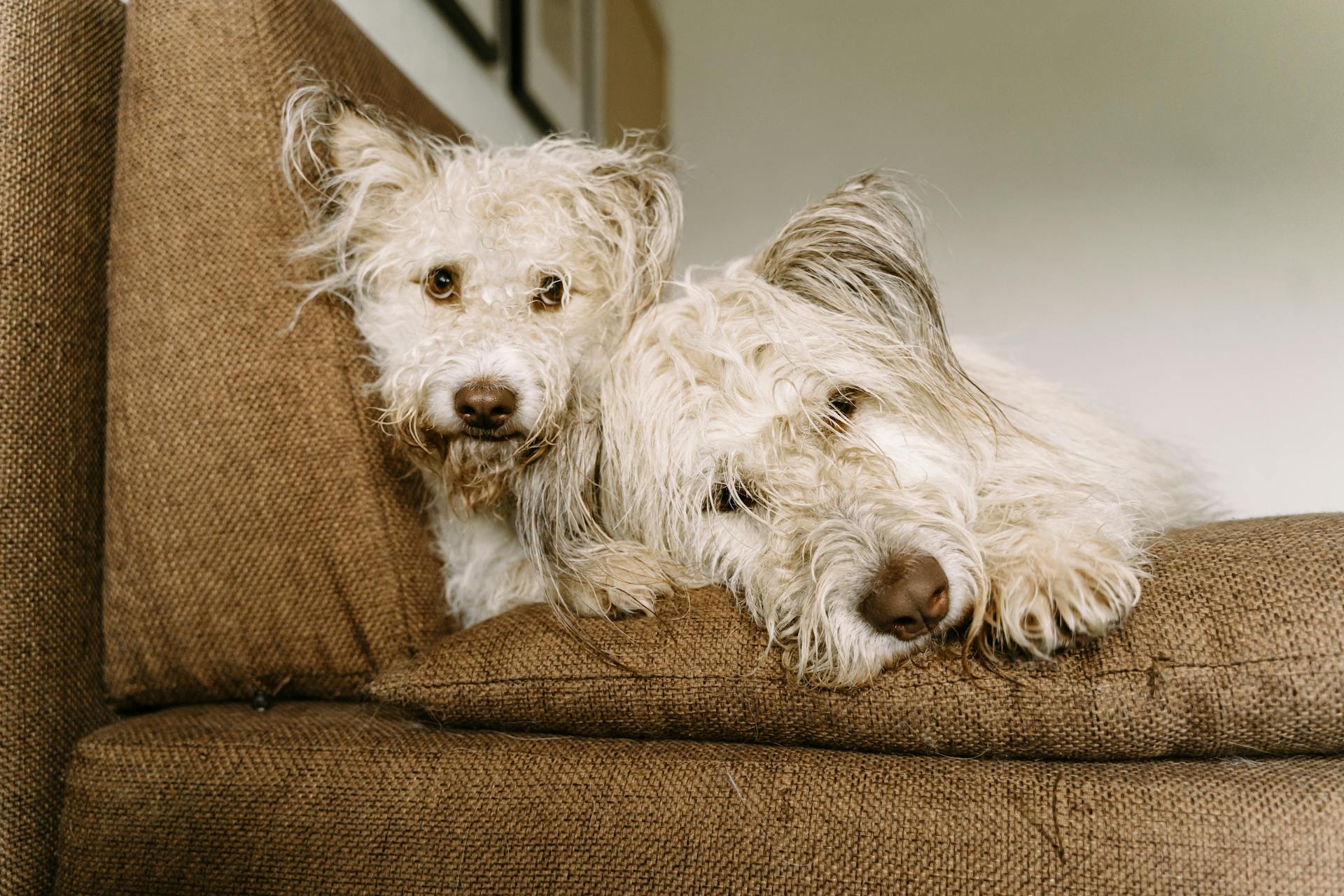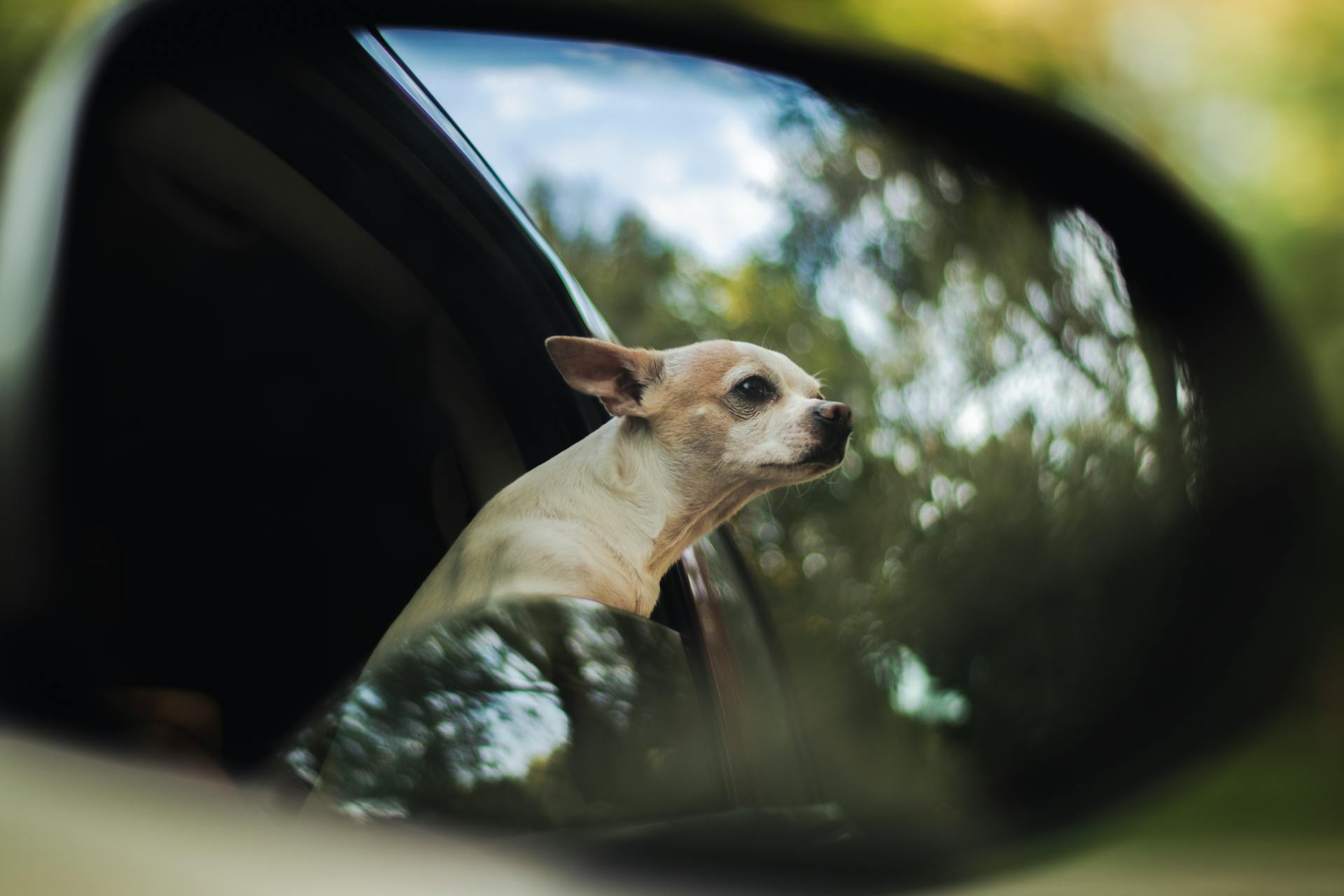
Separation anxiety is a common issue among dog owners, and unfortunately, it can manifest in some unusual ways. One of the most unexpected signs of separation anxiety in dogs is diarrhea, which may leave many pet owners feeling confused and concerned.
When a beloved pup is left alone, it can cause extreme stress that manifests itself through various symptoms, one being gastrointestinal upset or diarrhea. When left alone, dogs may become mentally and emotionally overwhelmed, leading to gastrointestinal distress that can cause loose stools or runny bowel movements. This can be exacerbated if their meals don't sit well with them, especially if they're consuming too much rich food while they're home alone.
The key to managing this symptom of separation anxiety is to reduce your pet’s stress levels by ensuring a distraction-free environment. Offer plenty of stimulation for your pup – interactive toys for example – so ask yourself “what would my pet be doing if I were home?” If you have even just 10 minutes before you go out to work or an appointment, spend that time giving your pup attention by engaging in playtime or giving them lots of love. You should also try to keep the same schedule each day and establish an easy-to-follow routine that your pup has become used to over time. This will help them adjust without feeling anxious when you have to step away from home from time-to-time.
Providing your pooch with a regular exercise routine and plenty of mental stimulation can go a long way in preventing the onset of stress-induced diarrhea as well. Regular physical activity will have both short-term improvements on their overall wellbeing as well as longer lasting benefits for curbing any negative behaviors such as excessive barking when you're away from home.
Sometimes even all these preventative measures may not stop separation anxiety from causing diarrhea in dogs; but understanding why it's occurring and providing support where possible will go a long way towards helping your pup during these times. Ultimately with the right amount of care and management – diarrhea due to separation anxiety should eventually resolve itself and be prevented by good behavioral practices moving forward too!
Readers also liked: Can Stress Cause Pancreatitis in Dogs
What are common symptoms of separation anxiety in dogs?
Separation anxiety in dogs is a real and serious condition that can present numerous signs and symptoms that tend to be quite similar across all breeds. Separation anxiety in dogs can range from mild to severe depending on the individual dog and his or her behavioral history. Some common signs that your pup may be suffering from separation anxiety include destructive behavior, such as chewing or scratching furniture, excessive barking, howling, whimpering, pacing and restlessness, urination or defecation indoors, attempted escape behaviors, refusal to accept treats and an excessive attachment to or dependence on the owner.
It’s important to recognize that separation anxiety can have a number of causes. Various forms of experience (or lack thereof) can elicit fear in your pup and cause repetitive behaviors—such as vocalization—in response to any number of stimulation such as noises from outside the home, thunderstorms or even time spent apart from the owner. If you believe your dog is suffering from separation anxiety it’s important to take immediate action. You should start by consulting with a veterinarian who may refer you to a behavior specialist who can provide specialized guidance suited for your canine companion’s individual needs and behavior. In extreme cases of separation anxiety anti-anxiety medications may be prescribed in order to address any immediate medical issues while training is implemented in order to achieve long term success in overcoming this condition.
Does separation anxiety in dogs increase the risk of gastrointestinal distress?
Separation anxiety is an issue that affects many canine companions, making it difficult for them to be alone and resulting in behaviors like barking, howling and destructive behaviors. But while behavioral issues can be difficult to cope with, they can also have physical repercussions on a dog’s health. Recent studies have revealed that high anxiety can increase the risk of gastrointestinal distress in dogs, making it important to understand both the signs and possible treatments of this issue.
While some cases of separation anxiety in dogs may not result in physical problems, research has shown that those with extreme episodes are more prone to digestive and stomach issues due to prolonged states of stress. They often suffer from muscular spasms which activate gastrointestinal distress by increasing secretions and producing inflammation. Additionally, dogs who experience Separation Anxiety Syndrome (SAS) often associate eating as a form of comfort that perpetuates the creation of excess acid which further exacerbates their symptoms.
The best way for owners to reduce their dog’s physical problems related to separation anxiety is practical: work on managing your pup's behavioral issues by setting up a strict daily schedule for them with plenty of exercise and activities (such as dog sports!) during periods when you won't be at home. Desensitization techniques such as counterconditioning can also go a long way towards reducing your pup's emotional reactivity when changes occur or when left alone. Finally, establishing a safe haven where they can go whenever they need some quiet time but still remain close to you can help them feel secure again and reduce any associated stomach pains.
Explore further: Skin Problems
How can owners reduce the symptoms of separation anxiety in their dogs?
Separation anxiety in dogs is a difficult issue for pet owners to deal with. It can cause problems ranging from excessive barking and clawing at the door when you leave to destructive chewing, digging and other behaviors. Fortunately, there are steps owners can take to reduce the symptoms of separation anxiety in their dogs.
First, give your dog plenty of exercise throughout the day so that they are better able to rest while you’re away. This will help keep them mentally and physically stimulated while they’re alone, which may reduce anxious behavior. Additionally, spend quality time with your pup before you leave to create a positive association with being alone. Provide toys or treats that are designed for your pup to work on independently in order to keep them occupied. This can include food puzzles or other interactive toys that give them a reward for their initiative.
It is also important to remember that managing separation anxiety is a long-term process, so don’t make any shortcuts or rush the process with heavy-handed tactics like punishment or reprimands. Be consistent in both your methods and expectations as much as possible and try not to become frustrated when things take longer than you would prefer—successfully reducing separation anxiety usually involves patience and perseverance! With the right approach, however, it is entirely possible to make it easier on both owners and their furry friends alike!
Recommended read: Medications You Can Give a Dog
Can medication be used to treat both separation anxiety and gastrointestinal distress in dogs?
Can medication be used to treat both separation anxiety and gastrointestinal distress in dogs? Understanding how pet medications work is essential when it comes to our beloved canine companions. Fortunately, there are medications available that can help alleviate the discomfort and mental stress of both separation anxiety and gastrointestinal distress.
Separation anxiety is one of the most difficult issues faced by dog owners. A common dog behavior problem, it often leads to a vicious cycle of destructive behaviors like continual barking, repetitive pacing, or chewing on household items. This is brought on by the dog’s anxiety at being away from its owner and home environment. In many cases, medications such as benzodiazepines can help relax a dog dealing with intense separation anxiety.
Gastrointestinal distress often presents itself as stomach upset, diarrhea or vomiting in dogs. While there can be many underlying causes for gastrointestinal upset such as inappropriate diet or infection, medications like antidiarrheals and anti-emetics may offer relief from the discomfort associated with gastrointestinal distress symptoms. Speak with your veterinarian about prescribed medications for your pup!
It’s important to remember that all pet medications should be synthesized with the care of professionals – whether it’s your vet or a qualified pharmacist – to ensure best results for your pup’s condition! Medications that treat both separation anxiety and gastrointestinal issues simultaneously exist, so make sure to inquire about these options if needed! With proper management and prescribed doses of medication, owners can have confidence knowing their pup is comfortable and taken care of throughout their time apart.
You might like: Dog Diarrhea Medications
What warning signs should owners watch for if their dog is prone to separation anxiety?
Owners of dogs that are prone to separation anxiety need to be extra vigilant in monitoring their pet’s behavior. While it can be difficult to separate ourselves from our furry companions, some precautionary signs point towards their discomfort. To catch on to these behaviors and prevent further distress, here are some warning signs owners should watch for with a contented canine.
One of the telltale signs of separation anxiety in dogs is excessive barking or howling when left alone. This is often prevalent when the pet is realizing you are about to leave the house or has been there for an extended period of time without you present.
Another sign may include pacing back and forth or moving objects around the house. An anxious animal may wander restlessly around furniture, walls, and other home items, seeking comfort in its space. This can also include repetitive jumping activities that appear compulsive in nature such as jumping on sofas and furniture.
Lastly, destructive chewing habits are also a leading indicator that your pet may not be enjoying their time away from you. Destructive behaviors such as eating furniture or shredding items throughout the home suggest they are dealing with a high level of stress while alone.
In an effort to reduce any existing stressors and address canine separation anxiety, it is important for owners to recognize these warning signs early on. Be sure to provide adequate exercise and stimulation before leaving your pup alone as well as an abundance of toys and chewables like bones and treats that offers positive reinforcement during their solo playtime sessions.
For your interest: Home Remedies for Separation Anxiety in Dogs
What kind of diet should an owner provide for their dog with separation anxiety and diarrhea?
The diet an owner should provide for their dog with separation anxiety and diarrhea depends on many factors, and will vary depending on the individual dog. Some basic principles should be applied in determining the best diet to help this type of dog.
First, a high-quality, nutrient dense food that is easy on digestion and is high in nutrients is essential. Food with simple ingredients, without any artificial preservatives or coloring agents should be used to mitigate any digestive irritation or flare-ups. Many dogs with separation anxiety also suffer from stress, so diets rich in calming omega fatty acids may help to reduce stress levels - foods such as fish oil and salmon oil can be beneficial. A diet with balanced levels of protein, carbohydrates and fats is recommended as well as having a variety of sources for each major nutrient group - for example, chicken meal combined with fish meal and lamb meal for sources of protein rather than just one protein source.
In addition to choosing a quality food tailored to the needs of a dog with separation anxiety, owners should consider employing probiotics into the diet if diarrhea persists or separation anxiety persists despite other changes that have been made. Probiotics are beneficial bacteria which can aid in boosting digestion and absorption of nutrients, which can help reduce symptoms of anxiety and help manage irritable bowel symptoms. Last but not least, owners should make sure that their dog's daily meals are supplemented with fresh drinking water to ensure adequate hydration. With all the above considerations taken into account the owner can then adjust these dietary suggestions as needed according their pet’s individual needs for best results.
Here's an interesting read: Truffle Oil
Sources
- https://www.veterinarians.org/how-to-treat-separation-anxiety-in-dogs/
- https://www.aspca.org/pet-care/dog-care/common-dog-behavior-issues/separation-anxiety
- https://www.petmd.com/dog/training/how-help-dog-separation-anxiety
- https://www.petmd.com/dog/behavior/10-medications-dog-anxiety
- https://petcreeks.com/separation-anxiety-dogs-symptoms/
- https://westvd.zoetispetcare.com/blog/article/dog-separation-anxiety
- https://todaysveterinarypractice.com/behavior/on-your-best-behavior-canine-separation-anxiety/
- https://www.cesarsway.com/dealing-with-dog-separation-anxiety/
Featured Images: pexels.com


